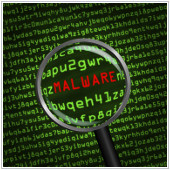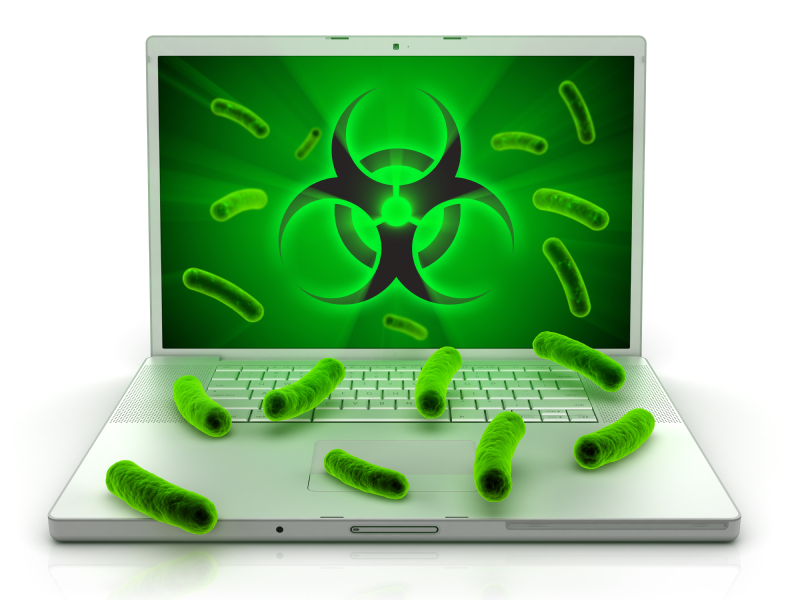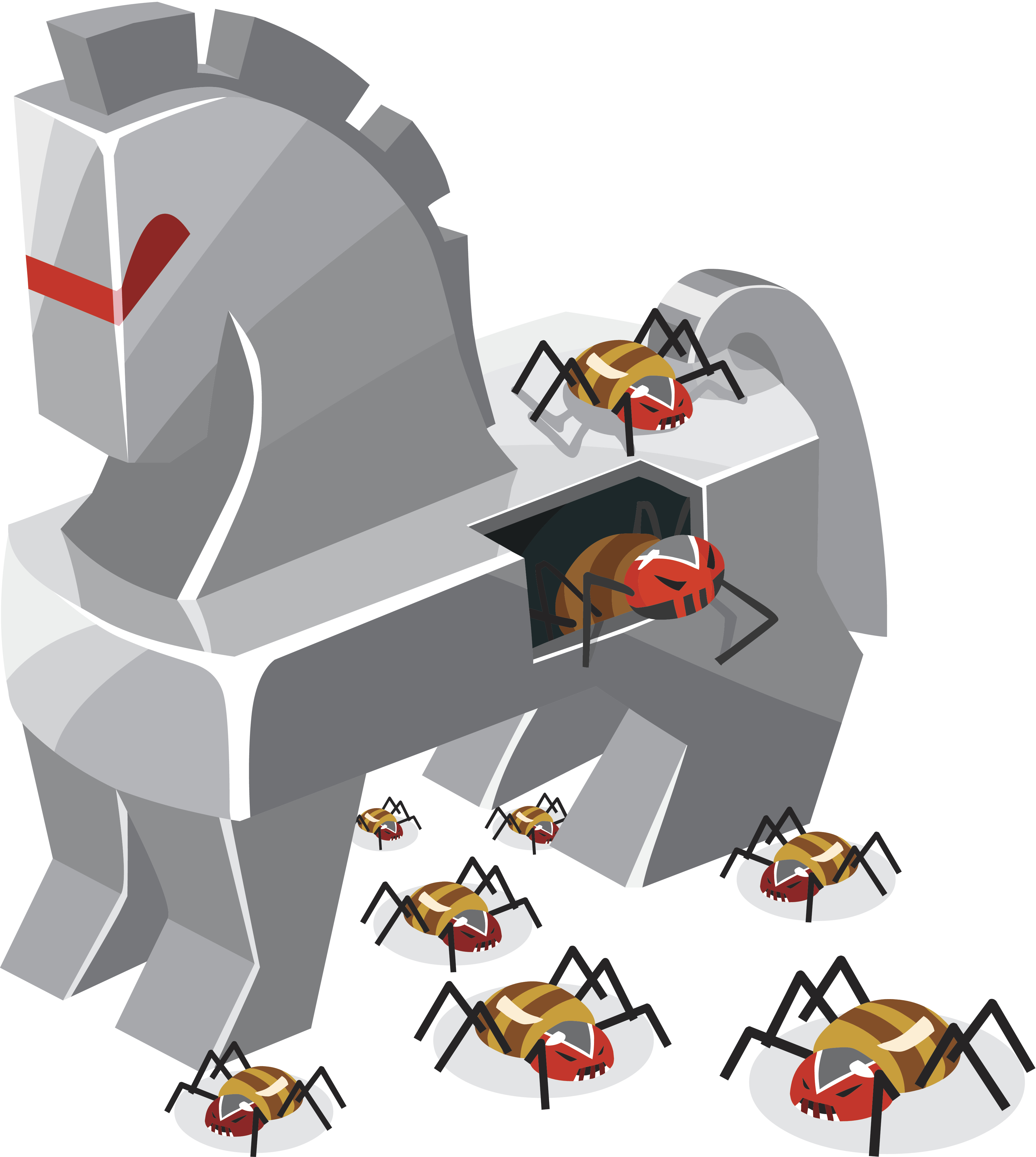How many of us actually know what the differences are between malware, viruses, Trojans, and other online threats? For those without a clue, here’s a description the most common threats and the steps you can take to keep your business protected. Don’t be in the dark when it comes to malware.
Malware is the short version of the word malicious software. And this is a general term that encompasses many types of online threats including spyware, viruses, worms, Trojans, adware, ransomware and more. The purpose of malware is to infect and harm your computer and potentially steal your information. Below explains the different types of malware and how they all differ from each other.

Virus—like a virus that can infect a person, a computer virus is a contagious piece of code that infects software and then spreads from file to file on a system. When infected software or files are shared between computers, the virus then spreads to the new host. The best way to protect yourself from viruses is with a reliable antivirus program that is kept updated. Additionally, you should be wary of any executable files you receive because viruses often come packaged in this form.

Spyware—just like a spy, a hacker uses spyware to track your internet activities and steal your information without you being aware of it. Credit card numbers and passwords are two common targets of stolen data. A common mistake many people make is they assume their antivirus software automatically protects them from Spyware. This is not always true as some antivirus isn’t designed to catch spyware. If you are already suffering from an infestation, a program that works wonders is Malwarebytes.

Worms—similar to viruses, worms replicate themselves and spread when they infect a computer. The difference between a worm and a virus is that a worm doesn’t require the help of a human or host program to spread. Instead, they self-replicate and spread across networks without the guidance of a hacker or a file/program to latch onto. In addition to a reliable antivirus software, to prevent worms from infecting your system you should ensure your firewall is activated and working properly.

Trojan—like the Trojan horse from ancient Greek mythology, this type of malware is disguised as a safe program designed to fool users, so that they unwittingly install it on their own system. Generally, the hacker uses a Trojan to steal both financial and personal information. It can do this by creating a “backdoor” to your computer that allows the hacker to remotely control it. Antivirus software is a dependable way to protect yourself against Trojans. For further safety, it’s wise to not open up suspicious attachments, and also ensure that your colleagues aren’t downloading any programs or applications illegally at the office – as this is a favorite place hackers like to hide Trojans.

Call them what you want, they are nothing but trouble for your computer. Think you may have one (or more) of these types of malware on your PC? Drop your computer off to any of our locations and get it cleaned up. Sign up for a Home Solutions plan during your tune-up to keep your computer clean and protected.
